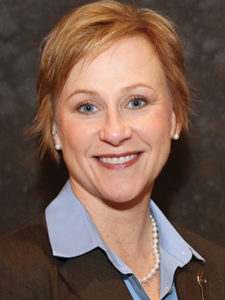
Large-scale natural disasters, particularly those brought on by hurricanes and wildfires, have tested the emergency response, preparedness, and resilience of American institutions and citizens in recent years. The consequences of these emergencies have also prompted the health care community to examine its crisis procedures.
In fact, the Centers for Medicare and Medicaid Services now include emergency response and preparedness as an approved quality improvement area for consideration in alternative payment models, making this a good time for clinics to take stock.
Clinicians can get started at the ARHP clinical practice session Disaster Preparedness in Rheumatology: Are You Ready? on Wednesday, 11:00 am – 12:30 pm in Room W184a.
Kamala Nola, PharmD, Professor and Vice Chair of the Department of Pharmacy Practice at Lipscomb University, Nashville, TN, will discuss “Emergency Response & Preparedness in Rheumatology.”
“I think there are two perspectives that we want the audience to consider,” Dr. Nola said. “From a practice perspective, what things need to be done or thought through in case of disaster? Then we need to consider how our patients might experience a disaster. What are the issues they may face that may be difficult to address?”
As part of her lecture, Dr. Nola will discuss issues such as access to medication, access to records, and situations that may make certain disease states worse.
“This is particularly important in rheumatology,” she said. “Rheumatic diseases are often worse during times of high stress. We need to think through these aspects of disaster preparedness.”
Fortunately, many boards of medicine and pharmacy recognize that emergency situations can require a different set of rules, according to Dr. Nola. Many of those boards are looking at their regulations and debating when those rules may need to be suspended in emergency situations.
“The emphasis should always be on ensuring patients and physicians have access to records and medications, including emergency supplies of medications,” she said. “Some protocols typically in place to protect patients and providers may not make sense during an emergency.”
Dr. Nola will also speak specifically about ways rheumatologists can prepare.
“There’s limited literature in the rheumatology community in terms of disaster preparedness, and what has been done has been done outside the United States, so we need more research,” she said. “That said, there are some general checklists out there that are a great place to start. As we discuss this more, I hope to see the rheumatology community tailoring these lists to our specialty and our practices. You can anticipate what your needs will be in a given disaster, so you can be prepared for a wide range of contingencies.”
Dr. Nola will also share some of the specific things happening in pharmacy to ensure medication supplies remain safe during disasters.
“There are things we can do to protect medications,” she said. “For example, you don’t want medications to be tainted if there’s a flood. You don’t want temperature-sensitive medications to be ruined during a power outage.”
The session will also include a lecture by Air Force Lt. Col., Angelique Collamer, MD, FACP, FACR, Rheumatology Clinic Service Chief, Walter Reed National Military Medical Center, Washington, DC, titled “Navigating Local & International Disasters: A Military Perspective.”


